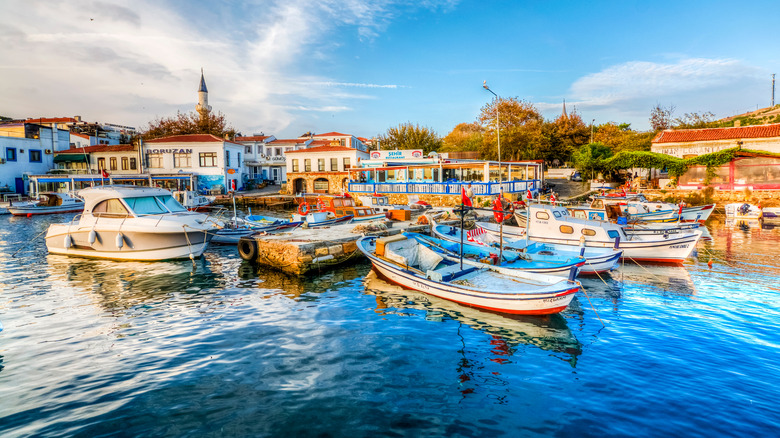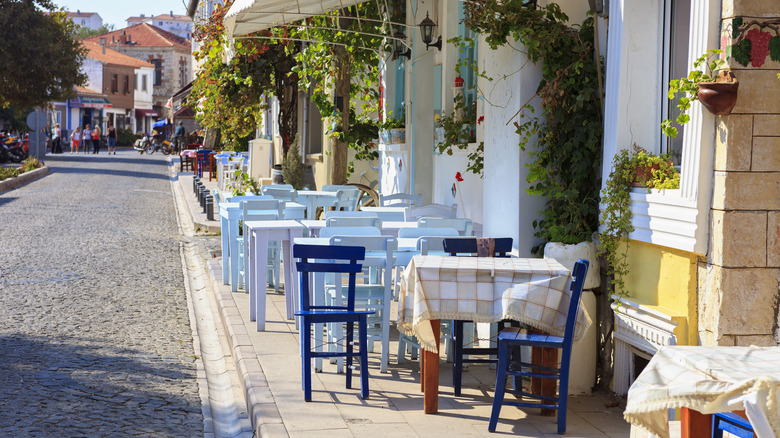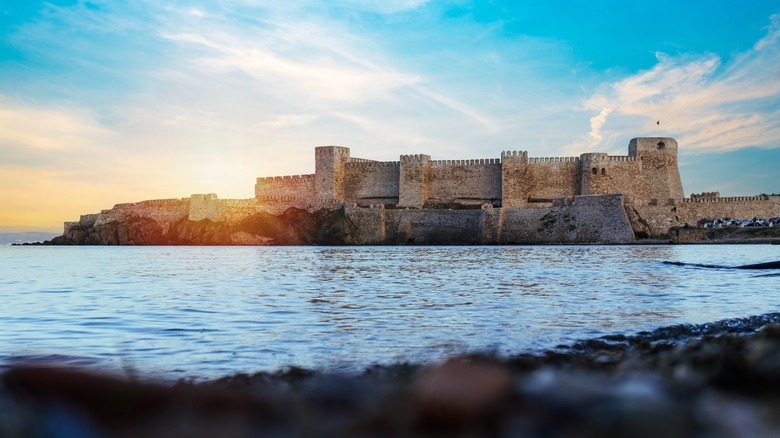Enjoy Vineyards, Beaches, And Freshly Caught Seafood At This Affordable Turkish Island
At the climax of the Trojan War, when the wooden horse was being wheeled past the city walls, it was on Bozcaada that the Greek army hid and waited to strike. Outside of ancient poetics, the small Turkish island, strategically situated at the mouth of the Dardanelles, traded hands between almost every giant of antiquity. Alexander the Great claimed its shores, as did the Roman Empire. The westward bound Persian Empire and the Delian League also occupied the banks long before it exchanged hands between the Byzantines, the Republic of Venice, and the Ottoman Empire. Life has flourished on Bozcaada since prehistory, its hills inhabited since roughly 3000–2700 BC. Long home to legends, the Turkish island is today best known for its fertile vineyards, stretching sands, and fish plucked fresh from the Aegean.
While Greek ruins are scattered all along Turkey's breathtaking coastal cliffs, accessing this isolated island isn't as simple as flying straight into those shoreside hubs. There's no air link, you should travel instead by ferry from Geyikli Yükyeri Ferryboat Pier, which is around a 5-hour drive from Istanbul's urban bustle and crowds. Boats typically leave five times per day, but travelers should keep an eye on the schedule as it is prone to frequent adjustments. Visit during spring or autumn for more temperate climes, or during the summer if you plan to make the most of the sweltering Mediterranean sun.
Taste the land and sea in Bozcaada, Turkey
For some 3,000 years, islanders on Bozcaada have devoted themselves to viticulture. Meticulously pruning miles of grapevines, cultivating the endemic Çavuş, Kuntra, Karalahna, and Vasilaki grapes, and filling the cups in each of the many wine bars found across the island. Take a day to visit a few of the island's six wineries. Drop by the best known amongst them, Corvus, to tuck into a cup of their acclaimed Corpus wine. Alternatively, drop by Amadeus to sample their whites and roses alongside refreshing Mediterranean snacks. They sell wine by the glass for 60 TRY, or $1,74 USD.
Visit in the first week of September to catch the annual Grape Harvesting Festival, when winemakers haul their grapes of Bozcaada square with the aid of donkeys, horses, and tractors. They sell homemade wines and jams on the shorefront, holding concerts and agricultural competitions.
Beyond the vines, the favorite flavors of Bozcaada come from its surrounding seas. Steaming platters of seafood are served up at the restaurants facing Ayazma Beach at lunchtime. Skewer flounder on your typical Turkish shish kebab at Thenes, where the bulk of the fish dishes are listed at less than 35 TRY per plate. Diners take to the tables faintly wobbling on the cobblestone streets of the town center once evening falls. Order a glass of raki and peruse the hand-written chalk menu at local favorite Asmali Meyhane, where classic Turkish mezzes are paired with fresh caught seafood.
Enjoy Aegean beaches and Bozcaada's storied historical sites
As one of the most affordable places to enjoy a Mediterranean vacation, Turkey's mainland beaches are increasingly popular among the all-inclusive, mass tourism crowds. Bozcaada's convenient location, just out of reach of the crowds, means that its stretches of sand aren't overrun. Warm up after a chilly dip on the edge of the Dardanelles with a lounge on the beach, or head further inland to explore the intriguing historical sites left behind by thousands of years of conquerors.
The massive stone fortress that overlooks the island's azure waves, the Bozcaada castle, represents the turbulent history of the strategic island well. A stronghold of some sort has been standing sentinel over the island since the days of the Romans, but the fortifying structure that still stands has been used at least since the Byzantine era. It received a revamp under the Venetians, and later under the rule of Ottoman Mehmed the Conqueror. Beyond the castle and archaeological sites of antiquity dotted across the island, there is also a more easily explored museum in town. It houses relics from prehistory all the way up to the 20th century.
If multi-millennia worth of historical objects start to tire you out, take to one of the hiking trails that weave across the island. They bypass olive groves and vineyards, perpetually perfumed by the pomegranate trees and rosemary bushes springing up by the trailside.


